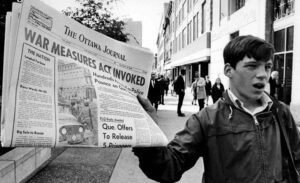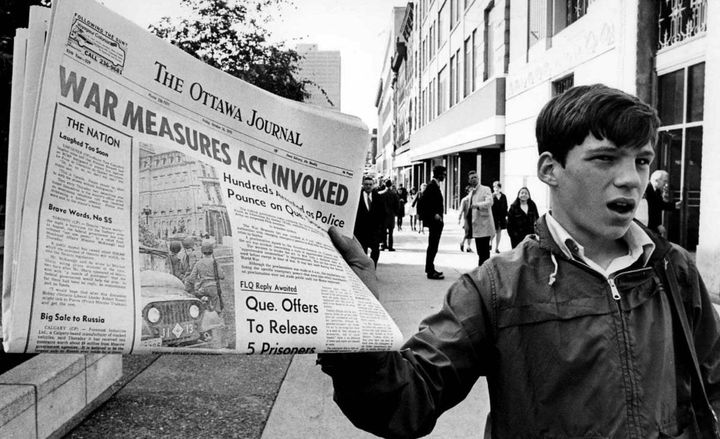“Apprehended Insurrection”, October Crisis 1970 and Today

TORONTO – I plead for understanding from our readers for invoking some “personal experience reflections” in commentary on the Proclamation by our government that it will invoke the New Emergencies Act.
As at time of writing, I confess to not having yet seen a line in writing about what it will actually contain, once it will be presented to the House of Commons. I DID follow assiduously virtually every question and answer directed to our political leaders and the commentary by learned Academics convened, post haste, to share their expertise.
I also tried to read about the Emergencies Act (EA). The most informed, objective reference I could read on such short notice was written by Peter Rosenthal (The New Emergencies Act: Four Times the War Measures Act, 1991 20-3 Manitoba Law Journal 563, 1991 CanLII Docs 129). He was providing a scholarly assessment of the EA introduced and approved by the then Conservative government in the late 1980s. I was a candidate preparing for election to the House of Commons at the time.
Allow me to share my concerns. The War Measures Act (WMA) was invoked three times in Canadian history, twice as a cover to conscript a reticent Francophone population for a war effort they saw as an Anglo affair. These were still hotly debated in the heady days of The Quiet Revolution and the Vietnam War in the late 1960s.
The second invocation of the WMA, 1940, included the denunciation of Italians (and others) as “enemy aliens” subject to incarceration, ‘round the clock surveillance, summary dismissal from places of employment, confiscation of property and general abuse and ridicule without justification.
On Valentine’s Day, it was neither pleasant nor reassuring to see two Ministers of Italian origin front and centre in the explanation of why this Emergencies Act is necessary after seventeen days of inaction. I could not help but recall another Prime Minister in October of 1970 justifying the third imposition of the WMA… he perceived an insurrection against the State’s authority.
Some readers may remember that a Front de Liberation du Quebec (FLQ) had taken the Quiet Revolution – a cultural transformation of Quebec society – to a not so genteel a point: blowing up mailboxes, harassing (primarily Italian) citizens who preferred to send their children to Separate Schools (English), kidnapping an English diplomat (James Cross) and murdering a Provincial Cabinet Minister, Pierre Laporte.
All of this happened in and around Montreal. As Rosenthal pointed out, the issues and the criminal activity were resolved locally by local agents of the Courts acting independently of the Federal powers. Provincial authorities operating in a climate of trying to reaffirm their “sovereignty” would/could not have it any other way.
Nonetheless, the RCMP used the accorded powers to conduct blitzes against what they saw as the expanding influence of drug distribution organizations in British Columbia, Western Quebec and Southern Ontario. They were “following the money” [associated with drugs]. What resulted from their investigations, one may ask?
Today, as one Minister pointed out, the EA is about “following the money”. Presumably to prevent “foreign influencers” from interfering in our affair because some American donors contributed some thousands of dollars to a Trucker convoy. About 90% of Canadians live within 100 kilometers of the American border. Given the nature of their business, the vast majority of convoy participants are, in all likelihood, involved in transborder commerce. Should one expect that they would have no friends?
President Biden presides over a multi trillion dollar budget, what did he ask of our Prime Minister in that phone call?
The pic is from https://www.thecanadianencyclopedia.ca)



